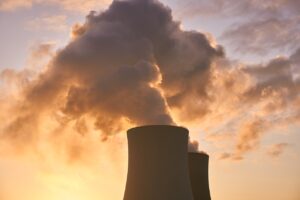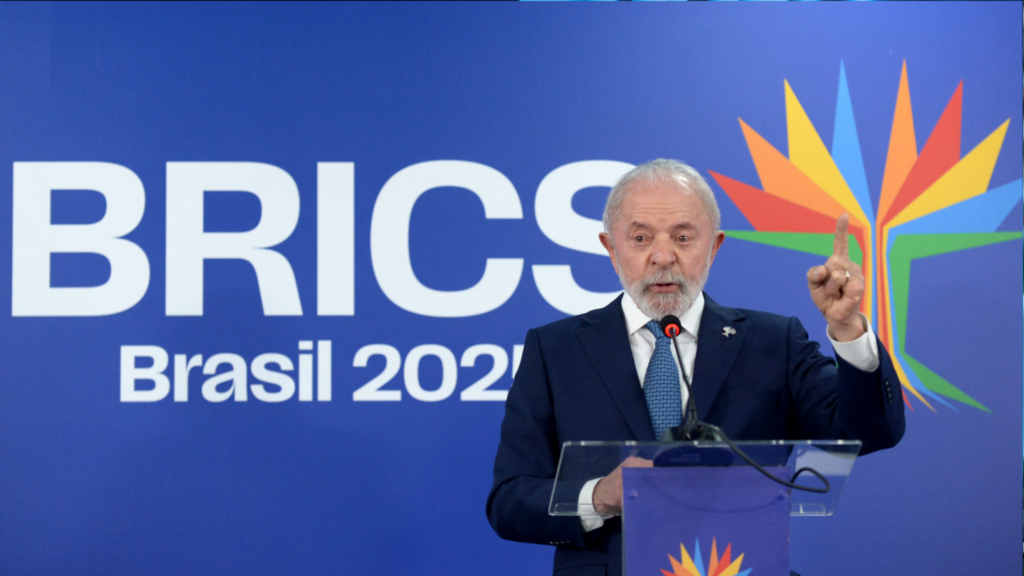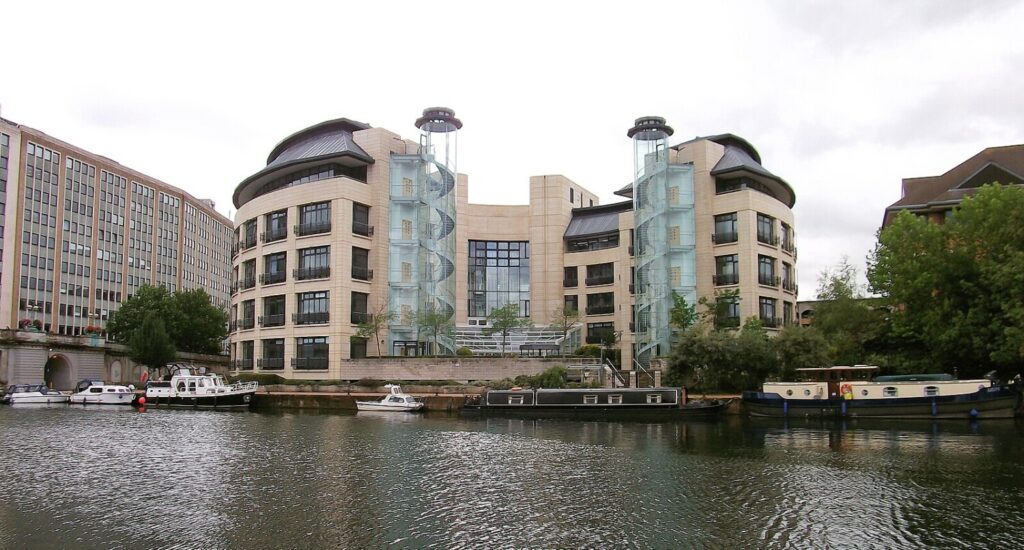U.S.-Iran Negotiations at the Crossroads
The nuclear talks between the United States (U.S.) and Iran have reached a critical juncture in recent days. At stake is a core security principle emphasized by Washington and its allies: under no circumstances can Iran be allowed to obtain a nuclear weapons program. Recent diplomatic contacts – including indirect talks through mediators – suggest a tentative push to rein in Iran’s nuclear program. And yet, progress remains fragile. Iran’s leaders insist their nuclear ambitions are peaceful, but their escalating enrichment activities have fueled deep skepticism abroad. With Tehran’s uranium enrichment advancing and time running short, high-stakes diplomacy is unfolding to prevent a nuclear-armed Iran.
From JCPOA to Today
In 2015, Tehran and world powers agreed to the Joint Comprehensive Plan of Action (JCPOA), which imposed strict limits on Iran’s nuclear activities in exchange for sanctions relief (Davenport, 2023). The deal extended Iran’s “breakout time” to roughly a year and put its program under rigorous monitoring. This accord began to unravel in 2018 when the first Trump administration withdrew the United States from the JCPOA and reimposed sanctions. Iran responded by breaching the accord’s limits from 2019 and onward (Mills, 2024). It has since enriched uranium up to 60% purity – far above the 3.67% cap – and amassed a uranium stockpile many times over the JCPOA’s threshold (Mills, 2024). International monitors warn Iran’s breakout time has now plummeted to mere weeks, raising global alarm and urgency for a renewed agreement (IAEA, 2023).
Recent Developments
After the failure of revival talks in 2021–2022 under the former U.S. President, Joe Biden, several years of impasse followed. However, the two sides cautiously returned to dialogue in April 2025. Oman and other intermediaries facilitated backchannel contacts that set the stage for the first substantive talks in years (Hafezi, 2025). Under the pressure of a new U.S. administration, negotiations resumed indirectly. President Donald Trump has bluntly warned Tehran to abandon any nuclear ambitions or “face a possible military strike” on its nuclear facilities (Slattery & Holland, 2025). “Iran…cannot have a nuclear weapon,” Trump declared, encapsulating the American stance (Slattery & Holland, 2025). The hard rhetoric has been paired with cautious diplomacy.
On April 19, 2025, U.S. Special Envoy to the Middle East, Steve Witkoff, and Iranian Minister of Foreign Affairs, Abbas Araghchi, held indirect talks via Omani mediators in Rome, reportedly making “very good progress” towards a framework for a new deal (Hafezi, 2025). Both sides described the atmosphere as constructive and agreed to convene expert working groups to draft the contours of an agreement. However, significant gaps remain. Tehran insists on substantial sanctions relief and maintains it will never entirely forsake uranium enrichment. For its part, Washington demands stringent limits and verification to ensure Iran “never reaches a nuclear weapon capability” again. The coming weeks are likely to see intense bargaining as negotiators seek to bridge these differences. IAEA Director General Rafael Grossi has cautioned that Tehran and Washington “don’t have much time” left to reach an understanding (The Times of Israel, 2025).

Global Response and Strategic Dynamics
The international community is closely watching these negotiations. The European powers (the United Kingdom, France, and Germany), along with the European Union (EU), have played a mediating role and strongly support restoring nuclear constraints. In 2023 the European “E3” even extended their own sanctions on Iran – set to expire under the JCPOA timeline – citing Iran’s ongoing non-compliance and nuclear escalation (Mills, 2024). The JCPOA’s formal expiration in late 2025 looms, adding pressure to reach a new understanding before remaining UN measures lapse (Vakil & Tabrizi, 2025). The E3 and the EU continue to urge both Washington and Tehran to compromise and avoid a collapse of diplomacy.
Russia and China, both signatories of the 2015 deal, also wield influence. While Moscow and Beijing claim they do not want to see a nuclear-armed Iran, they oppose extreme pressure on Tehran and have provided Iran economic lifelines. Russia has offered to help mediate the 2025 talks, with Foreign Minister Sergey Lavrov stating Moscow is “ready to assist… and play any role” that benefits a deal (The Times of Israel, 2025). China likewise advocates a diplomatic resolution and has encouraged Iran to stick to peaceful commitments. Still, neither Russia nor China is likely to support new UN sanctions, making a negotiated outcome all the more vital.
Meanwhile, Israel views the prospect of an Iranian nuclear weapon as an existential threat and has vowed to prevent it at any cost (Banco, 2025). Prime Minister Benjamin Netanyahu insists any agreement must dismantle Iran’s bomb-making capability, and Israel has not ruled out taking preemptive military action. Israeli defense officials have drawn up contingency plans for strikes on Iran’s nuclear sites, though the U.S. at present prefers to give diplomacy a chance (Banco, 2025). The mere possibility of an Israeli strike – and Iran’s potential retaliation – accentuates the high stakes of failure.
The Arabian Gulf’s Changing Stance
Traditionally, the monarchies of the Arabian Gulf, such as Saudi Arabia and the United Arab Emirates, backed strong measures to constrain Iran, fearing that a nuclear-armed Iran would dominate the region or trigger a nuclear arms race (Mahmood, 2014). However, over the last two years, the Gulf Cooperation Council (GCC) states have consistently prioritized diplomacy over confrontation; engagement over isolation; and regional dialogue over military escalation (Haghirian, 2024).
This approach has been evident since the March 2023 reconciliation agreement between Iran and Saudi Arabia, which was brokered by China. In the wake of Iran’s large-scale missile and drone attack on Israel in October 2024, Gulf states sought to reassure Iran of their neutrality in the conflict, expressing concerns that a wider escalation could threaten their oil facilities (Middle East Monitor, 2024). Tehran, in turn, warned that any Arabian Gulf state allowing the use of its airspace or military bases for attacks against Iran would be considered complicit and would face retaliation (Hafezi & Mills, 2024).
Reinforcing this stance, Saudi Defense Minister Prince Khalid bin Salman visited Tehran on April 17, 2025, delivering a message from King Salman bin Abdul Aziz to Supreme Leader Ayatollah Ali Khamenei (Al Jazeera, 2025). The visit aimed to enhance bilateral relations and discuss mutual interests, emphasizing the kingdom’s commitment to de-escalation and regional stability. Given these diplomatic efforts and the mutual interest in avoiding further conflict, the likelihood of the Arabian Gulf states escalating tensions against Iran remains highly unlikely (Arab News, 2025).
Conclusion
The U.S.-Iran nuclear negotiations hang in a delicate balance. The world’s major powers appear united on the principle that Iran must never be allowed to develop a nuclear weapon. The challenge lies in translating that principle into a durable diplomatic agreement. Recent talks have offered a glimmer of hope that a new deal can be reached to impose verifiable limits on Iran’s nuclear program while addressing Tehran’s demands for economic relief. If diplomacy succeeds, it could pull the Middle East back from the brink and reinforce the global non-proliferation regime. If it fails, the result may be a dangerous spiral of nuclear brinkmanship, harsher sanctions, and possible military conflict. In either case, the unwavering bottom line remains clear: the international community is determined to do whatever it takes to prevent a nuclear-armed Iran.
Bibliography
Al Jazeera (2025). Saudi defence minister visits Tehran before Iran-US talks. [online] Al Jazeera. Available at: https://www.aljazeera.com/news/2025/4/17/saudi-defence-minister-visits-tehran-before-iran-us-talks [Accessed 18 Apr. 2025].
Arab News (2025). Saudi defense minister meets with Iranian leadership during official visit. [online] Arab News. Available at: https://www.arabnews.com/node/2597417/saudi-arabia [Accessed 18 Apr. 2025].
Banco, E. (2025). Exclusive: Israel still eyeing a limited attack on Iran’s nuclear facilities. Reuters. [online] 19 Apr. Available at: https://www.reuters.com/world/middle-east/israel-still-eyeing-limited-attack-irans-nuclear-facilities-2025-04-19/ [Accessed 19 Apr. 2025].
Board of Governors Verification and monitoring in the Islamic Republic of Iran in light of United Nations Security Council resolution 2231 (2015). (2023). [online] International Atomic Energy Agency. International Atomic Energy Agency. Available at: https://www.iaea.org/sites/default/files/23/09/gov2023-39.pdf [Accessed 19 Apr. 2025].
Davenport, K. (2023). Timeline of Nuclear Diplomacy With Iran, 1967-2023. [online] Arms Control Association. Available at: https://www.armscontrol.org/factsheets/timeline-nuclear-diplomacy-iran-1967-2023# [Accessed 17 Apr. 2025].
Hafezi, P. (2025). Iran, US task experts with framework for a nuclear deal after ‘progress’ in talks. Reuters. [online] 19 Apr. Available at: https://www.reuters.com/world/iran-us-hold-talks-rome-bid-reach-nuclear-deal-2025-04-19/ [Accessed 20 Apr. 2025].
Hafezi, P. and Mills, A. (2024). Exclusive: Gulf states must not allow use of airspace against Iran, Iranian official says. Reuters. [online] 9 Oct. Available at: https://www.reuters.com/world/middle-east/gulf-states-must-not-let-airspace-be-used-against-iran-iranian-official-says-2024-10-08/ [Accessed 16 Apr. 2025].
Haghirian, M. (2024). Walking a Tightrope: How Gulf States are Navigating the Iran-Israel Conflict • Stimson Center. [online] Stimson Center. Available at: https://www.stimson.org/2024/walking-a-tightrope-how-gulf-states-are-navigating-the-iran-israel-conflict/ [Accessed 18 Apr. 2025].
Mahmood, O. (2014). Iran’s Nuclear Diplomacy: How the Gulf Feels Threatened. [online] Royal United Services Institute (RUSI). Available at: https://www.rusi.org/publication/irans-nuclear-diplomacy-how-gulf-feels-threatened [Accessed 15 Apr. 2025].
Middle East Monitor (2024). Gulf States sought to reassure Iran of their neutrality in Iran-Israel conflict, sources say. [online] Middle East Monitor. Available at: https://www.middleeastmonitor.com/20241003-gulf-states-sought-to-reassure-iran-of-their-neutrality-in-iran-israel-conflict-sources-say/ [Accessed 19 Apr. 2025].
Mills, C. (2024). What is the status of Iran’s nuclear programme and the JCPOA? [online] House of Commons Library. Available at: https://commonslibrary.parliament.uk/research-briefings/cbp-9870/# [Accessed 15 Apr. 2025].
Slattery, G. and Holland, S. (2025). Trump says Iran must give up dream of nuclear weapon or face harsh response. Reuters. [online] 15 Apr. Available at: https://www.reuters.com/world/trump-says-iran-must-give-up-dream-nuclear-weapon-or-face-harsh-response-2025-04-14/ [Accessed 18 Apr. 2025].
Times of Israel Staff (2025). Oman’s sultan to meet Putin in Moscow after Iran-US nuclear talks mediated by Muscat. [online] The Times of Israel. Available at: https://www.timesofisrael.com/omans-sultan-to-meet-putin-in-moscow-after-iran-us-nuclear-talks-mediated-by-muscat/# [Accessed 20 Apr. 2025].
Vakil, S. and Tabrizi, A.B. (2025). The US and Iran are on the road to escalation. Europe can and should create an off-ramp. [online] Chatham House – International Affairs Think Tank. Available at: https://www.chathamhouse.org/2025/03/us-and-iran-are-road-escalation-europe-can-and-should-create-ramp [Accessed 12 Apr. 2025].



